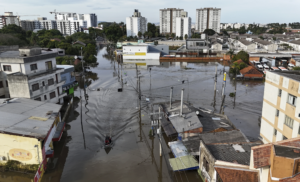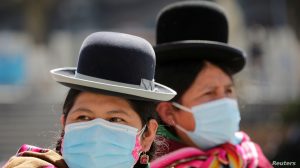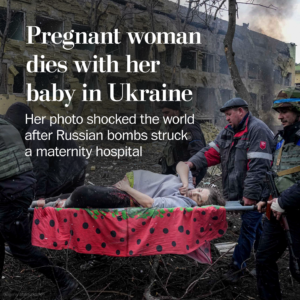Truce comes into force but countries accuse each other of derailing deal
Armenia and Azerbaijan agreed to a Russia-brokered ceasefire in Nagorno-Karabakh starting on Saturday, but immediately accused each other of derailing the deal intended to end the worst outbreak of hostilities in the separatist region in more than a quarter of a century.
The two sides traded blame for breaking the truce that took effect at midday (8am GMT) with new attacks, and Azerbaijan’s top diplomat said the truce never entered force.
The ceasefire announcement came overnight after 10 hours of talks in Moscow sponsored by Russian foreign minister Sergey Lavrov. The deal stipulated that the ceasefire should pave the way for talks on settling the conflict.https://interactive.guim.co.uk/uploader/embed/2020/09/archive-zip/giv-3902ZCJJXumj3L0O/
If the truce holds, it would mark a major diplomatic coup for Russia, which has a security pact with Armenia but also cultivated warm ties with Azerbaijan. But the agreement was immediately challenged by mutual claims of violations.
Minutes after the truce took force, the Armenian military accused Azerbaijan of shelling the area near the town of Kapan in southeastern Armenia, killing one civilian. Azerbaijan’s defence ministry rejected the Armenian accusations as a “provocation”.
The Azerbaijani military, in turn, accused Armenia of striking the Terter and Agdam regions of Azerbaijan with missiles and then attempting to launch offensives in the Agdere-Terter and the Fizuli-Jabrail areas. Azerbaijan’s foreign minister, Jeyhun Bayramov, charged that “conditions for implementing the humanitarian ceasefire are currently missing” amid the continuing Armenian shelling.
Armenia’s defence ministry denied any truce violations by the Armenian forces.
The latest outburst of fighting between Azerbaijani and Armenian forces began on 27 September and left hundreds of people dead in the biggest escalation of the decades-old conflict over Nagorno-Karabakh since a separatist war there ended in 1994. The region lies in Azerbaijan but has been under the control of ethnic Armenian forces backed by Armenia.
Since the start of the latest fighting, Armenia said it was open to a ceasefire, while Azerbaijan insisted that it should be conditional on the Armenian forces’ withdrawal from Nagorno-Karabakh, arguing that the failure of international efforts to negotiate a political settlement left it no other choice but to resort to force.
The foreign ministers of Armenia and Azerbaijan signed the truce in Moscow after the Russian president, Vladimir Putin, brokered a deal in a series of calls with president Ilham Aliyev of Azerbaijan and Armenia’s prime minister Nikol Pashinian.
Russia co-sponsored peace talks on Nagorno-Karabakh along with the United States and France as co-chairs of the so-called Minsk Group, which is working under the auspices of the Organization for Security and Cooperation in Europe. They have not produced a deal, leaving Azerbaijan increasingly exasperated.
Speaking in an address to the nation on Friday hours before the ceasefire deal was reached, the Azerbaijani president insisted on his country’s right to reclaim its territory by force after nearly three decades of international talks that “haven’t yielded an inch of progress”.
Fighting with heavy artillery, warplanes and drones engulfed Nagorno-Karabakh, with both sides accusing each other of targeting residential areas and civilian infrastructure.
According to the Nagorno-Karabakh military, 404 of its servicemen have been killed since 27 September. Azerbaijan has not provided details on its military losses. Scores of civilians on both sides have also been killed.
The current escalation marked the first time that Turkey, Azerbaijan’s ally, took a high profile in the conflict, offering strong political support. Over the past few years, Turkey provided Azerbaijan with state-of-the-art weapons, including drones and rocket systems that helped the Azerbaijani military outgun the Nagorno-Karabakh separatist forces in the latest fighting.
Armenian officials say Turkey is involved in the conflict and is sending Syrian mercenaries to fight on Azerbaijan’s side. Turkey denied deploying combatants to the region, but a Syrian war monitor and three Syria-based opposition activists confirmed that Turkey has sent hundreds of Syrian opposition fighters to fight in Nagorno-Karabakh. A lasting ceasefire in Nagorno-Karabakh would allow the Kremlin to stem Turkey’s bid to expand its clout in Russia’s backyard without ruining its strategic relationship with Ankara. The Turkish Foreign Ministry said the deal was “an important first step, but cannot replace a lasting solution.”
“Since the beginning, Turkey has always underlined that it would only support those solutions which were acceptable to Azerbaijan,” it said. While Turkey has aspired to join the Minsk Group talks as a co-chair, the statement issued by Armenia and Azerbaijan contained their pledge to maintain the current format of the peace talks.
Speaking in televised remarks after the talks, Armenia’s foreign minister, Zohrab Mnatsakanyan, emphasised that “no other country, in particular Turkey, can play any role.”




